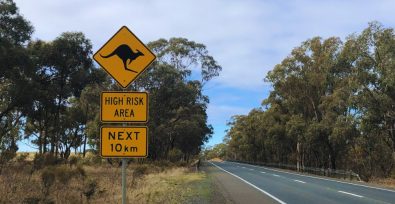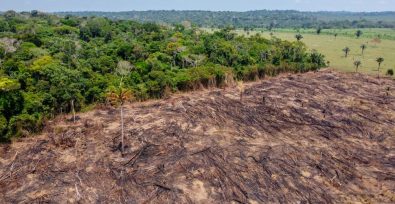A recent court case brought against Kmart in Australia is highlighting how legislation once hailed as landmark is now worth little more than the paper it is printed on. A review of Australia’s Modern Slavery Act found “no hard evidence” it has had any real impact. Currently laws only require that companies report on their supply chains. But if they fail to report, there’s no penalty. Even worse, if they do report forced labor in their supply chain, there is no requirement to act. Using the Kmart lawsuit as a platform, rights groups and activists are saying businesses must do more.
Alarm bells ringing for a “long time”
Australia currently has no import ban on goods linked to forced labor. And it doesn’t require companies to prevent modern slavery risks in their supply chains, only to report them. That situation has led to the current case against Kmart. The case is an attempt by anti-modern slavery groups to hold the retailer accountable to its anti-modern slavery pledge. But sadly, the Kmart case is likely just the tip of the slavery iceberg in Australia due to lax laws with no teeth.
The Guardian reports Freya Dinshaw, associate legal director at the Human Rights Law Centre saying,
“Buying clothes should never come at the expense of someone else’s freedom…(and) it shouldn’t be left to members of the public to take companies to court and force them to open their books where there are suspicions of links to modern slavery.”
Former Labor senator Chris Evans said it was imperative that Australian businesses do more to understand their supply chains. Evans also stated that the governments must do more to force businesses to weed out goods made using modern slavery.
Fewer reports, more action
Currently, thousands of imports enter Australia from firms already blacklisted by the US over alleged Uyghur forced labor links. Fiona David, founder of Fair Futures and a co-creator of the Global Slavery Index, is calling for Australia’s modern slavery laws to include a ban on the import of goods made with forced labor. In David’s opinion, most Australians would be surprised to learn the current situation.
According to David,
“It’s unacceptable that in Australia at the moment, there is nothing to stop or prohibit people from importing goods into Australia that have been made or that have been suspected to have been made by forced labor”
As the lawsuit highlights, forced labor good are making their way onto the shelves and into Australian homes. According to David, legislation needs to move beyond a framework that focuses “all of corporate effort on writing reports.” Instead, attention should be shifted to required actions and outcomes.
“At the moment the government is leaving it to each business individually to work out what it thinks is responsible business when it comes to labor risks. We have a situation where unscrupulous companies actually benefit by getting away with doing the wrong thing.”
The current lawsuit against Kmart is a way to demand answers from corporations on a case-by-case basis. However, beyond the issue with Kmart itself, the case highlights the larger issue of weaknesses in Australia’s modern slavery laws.
It’s time to sever ties with forced labor
Former ombudsman Prof John McMillan did a review in 2023 of the current lax legislation. He came up with 30 recommendations to update and strengthen Australia’s modern slavery protections. Particularly, an obligation that companies must address modern slavery risks in their supply chains, not simply report on them. In addition, penalties for companies that fail to comply and the labeling of certain regions, factories or suppliers as “high-risk,” like the Uyghur Region in China.
Freedom United stands beside those calling for change and increased accountability in Australia’s Modern Slavery Act. Take action and stand with us by learning more about Uyghur forced labor and signing our petition calling on corporations to sever their ties to the Uyghur Region.







Freedom United is interested in hearing from our community and welcomes relevant, informed comments, advice, and insights that advance the conversation around our campaigns and advocacy. We value inclusivity and respect within our community. To be approved, your comments should be civil.